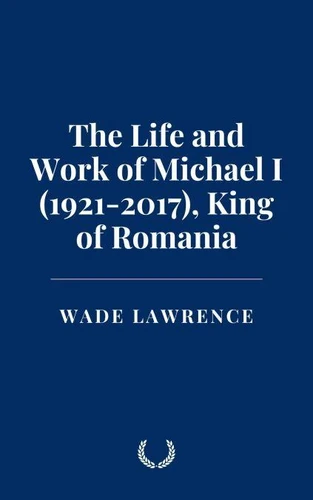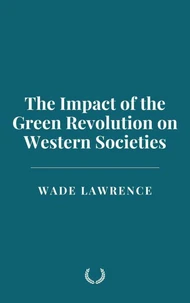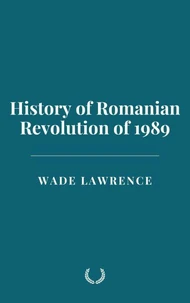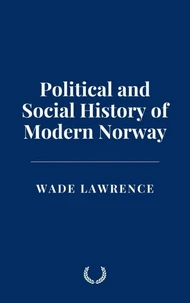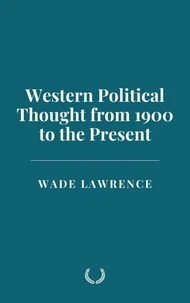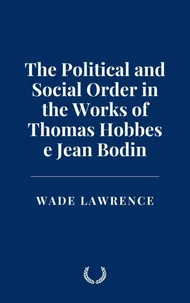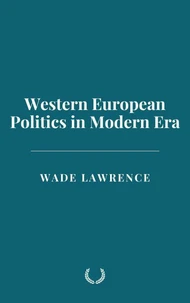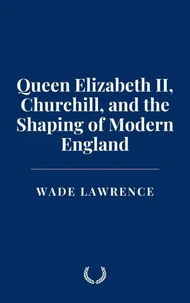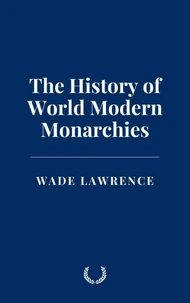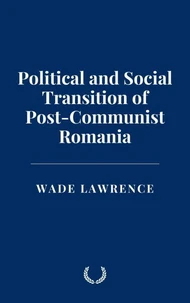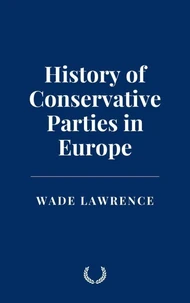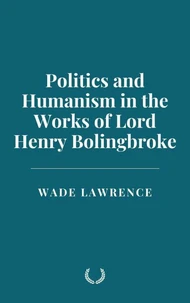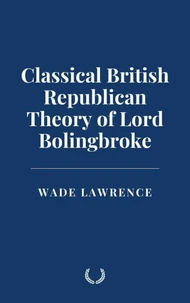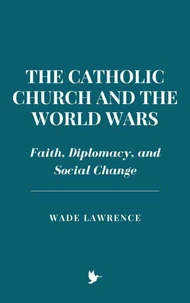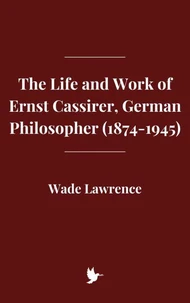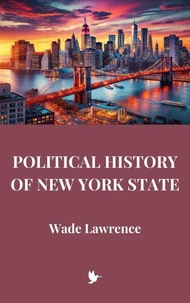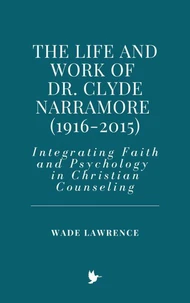The Life and Work of Michael I (1921 - 2017), King of Romania
Par :Formats :
Disponible dans votre compte client Decitre ou Furet du Nord dès validation de votre commande. Le format ePub est :
- Compatible avec une lecture sur My Vivlio (smartphone, tablette, ordinateur)
- Compatible avec une lecture sur liseuses Vivlio
- Pour les liseuses autres que Vivlio, vous devez utiliser le logiciel Adobe Digital Edition. Non compatible avec la lecture sur les liseuses Kindle, Remarkable et Sony
 , qui est-ce ?
, qui est-ce ?Notre partenaire de plateforme de lecture numérique où vous retrouverez l'ensemble de vos ebooks gratuitement
Pour en savoir plus sur nos ebooks, consultez notre aide en ligne ici
- FormatePub
- ISBN8230004264
- EAN9798230004264
- Date de parution20/01/2025
- Protection num.pas de protection
- Infos supplémentairesepub
- ÉditeurIndependently Published
Résumé
This book offers an in-depth exploration of the life and legacy of King Michael I of Romania, focusing on his personal journey, his role in the country's turbulent history, and the enduring symbolism of the monarchy. Born in 1921, Michael I's reign and exile spanned much of the 20th century, a period marked by Romania's dramatic political shifts, from its interwar monarchy to fascism, Soviet-backed communism, and eventually its post-communist transformation.
Michael's decision to overthrow the fascist regime of Ion Antonescu in 1944, his subsequent forced abdication in 1947, and his decades-long exile are examined in light of the political forces shaping Romania and Eastern Europe during the Cold War. The book delves into Michael's return to Romania in the early 1990s, after the fall of communism, as a symbol of national unity and moral leadership, while also exploring the challenges of Romania's transition to democracy.
Through a detailed analysis of primary sources, personal reflections, and the broader historical context, it highlights Michael's continued advocacy for democratic values, justice, and Romania's integration into European institutions. Despite not regaining the throne, Michael's symbolic importance as a figurehead for the values of dignity, justice, and national unity remains central to the country's identity, especially in its quest for national healing after decades of totalitarianism.
In the final chapters, the book explores how Michael I's legacy continues to influence Romania's post-communist evolution, its struggles with political corruption, and the ongoing debates about the role of the monarchy in shaping the country's future. Ultimately, this book positions Michael I not just as the last monarch of Romania, but as a moral figure whose leadership transcended political power, offering an enduring symbol of Romania's search for dignity, unity, and moral clarity in the modern era.
Michael's decision to overthrow the fascist regime of Ion Antonescu in 1944, his subsequent forced abdication in 1947, and his decades-long exile are examined in light of the political forces shaping Romania and Eastern Europe during the Cold War. The book delves into Michael's return to Romania in the early 1990s, after the fall of communism, as a symbol of national unity and moral leadership, while also exploring the challenges of Romania's transition to democracy.
Through a detailed analysis of primary sources, personal reflections, and the broader historical context, it highlights Michael's continued advocacy for democratic values, justice, and Romania's integration into European institutions. Despite not regaining the throne, Michael's symbolic importance as a figurehead for the values of dignity, justice, and national unity remains central to the country's identity, especially in its quest for national healing after decades of totalitarianism.
In the final chapters, the book explores how Michael I's legacy continues to influence Romania's post-communist evolution, its struggles with political corruption, and the ongoing debates about the role of the monarchy in shaping the country's future. Ultimately, this book positions Michael I not just as the last monarch of Romania, but as a moral figure whose leadership transcended political power, offering an enduring symbol of Romania's search for dignity, unity, and moral clarity in the modern era.
This book offers an in-depth exploration of the life and legacy of King Michael I of Romania, focusing on his personal journey, his role in the country's turbulent history, and the enduring symbolism of the monarchy. Born in 1921, Michael I's reign and exile spanned much of the 20th century, a period marked by Romania's dramatic political shifts, from its interwar monarchy to fascism, Soviet-backed communism, and eventually its post-communist transformation.
Michael's decision to overthrow the fascist regime of Ion Antonescu in 1944, his subsequent forced abdication in 1947, and his decades-long exile are examined in light of the political forces shaping Romania and Eastern Europe during the Cold War. The book delves into Michael's return to Romania in the early 1990s, after the fall of communism, as a symbol of national unity and moral leadership, while also exploring the challenges of Romania's transition to democracy.
Through a detailed analysis of primary sources, personal reflections, and the broader historical context, it highlights Michael's continued advocacy for democratic values, justice, and Romania's integration into European institutions. Despite not regaining the throne, Michael's symbolic importance as a figurehead for the values of dignity, justice, and national unity remains central to the country's identity, especially in its quest for national healing after decades of totalitarianism.
In the final chapters, the book explores how Michael I's legacy continues to influence Romania's post-communist evolution, its struggles with political corruption, and the ongoing debates about the role of the monarchy in shaping the country's future. Ultimately, this book positions Michael I not just as the last monarch of Romania, but as a moral figure whose leadership transcended political power, offering an enduring symbol of Romania's search for dignity, unity, and moral clarity in the modern era.
Michael's decision to overthrow the fascist regime of Ion Antonescu in 1944, his subsequent forced abdication in 1947, and his decades-long exile are examined in light of the political forces shaping Romania and Eastern Europe during the Cold War. The book delves into Michael's return to Romania in the early 1990s, after the fall of communism, as a symbol of national unity and moral leadership, while also exploring the challenges of Romania's transition to democracy.
Through a detailed analysis of primary sources, personal reflections, and the broader historical context, it highlights Michael's continued advocacy for democratic values, justice, and Romania's integration into European institutions. Despite not regaining the throne, Michael's symbolic importance as a figurehead for the values of dignity, justice, and national unity remains central to the country's identity, especially in its quest for national healing after decades of totalitarianism.
In the final chapters, the book explores how Michael I's legacy continues to influence Romania's post-communist evolution, its struggles with political corruption, and the ongoing debates about the role of the monarchy in shaping the country's future. Ultimately, this book positions Michael I not just as the last monarch of Romania, but as a moral figure whose leadership transcended political power, offering an enduring symbol of Romania's search for dignity, unity, and moral clarity in the modern era.

